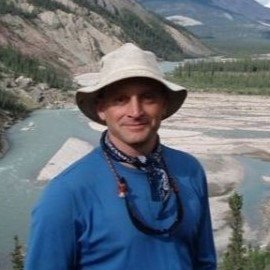Hér má nálgast námskeiðslýsingar allra námskeiðanna sem í boði eru. Einnig má sjá skipulag námsins í sameiginlegri kennsluáætlun Sjávarbyggðafræði og Haf- og strandsvæðastjórnunar.
Námskeiðin uppfylla kröfur ýmissa stéttarfélaga um námsstyrki. Vor- og sumarannir eru tilvaldar fyrir háskólanemendur sem vilja stytta námstímann í reglubundnu námi.
Fyrirspurnir sendist á kennslustjóra Háskólaseturs.
Tools for Community Development
- Summer 2024
- Næsta námskeið: 27. maí - 07. júní 2024
- CMM/CRD Elective Course | 4 ECTS
- Námskeið:CRD24
- Kennari: Dr. John Colton
Um námskeiðið
Students will explore the power of community and role agency plays in transforming community futures. Community and regional economic development and transformation depends on a suite of tools and frameworks. Theory of Change and Logic Models applied directly in the course learning experience provide a visual path to the application of tools in support of community development. Place Making, Asset Based Community Development (ABCD), and Community Capital Frameworks are examples of some of the material students will cover in the course. Students can expect to routinely apply the tools of the course to local and regional examples of community development.
Kennari
has worked at Acadia University in Wolfville, Nova Scotia for over 20 years in the Community Development and the Environmental and Sustainability Studies programs. His research areas span the terrestrial and marine environments and are often applied in nature focussing on meaning community outcomes. An example of this might include the Business and Community Toolkit for Tidal Energy Development or the Tidal Energy Community Engagement Handbook.
John has worked extensively in First Nation communities on economic development initiatives and more recently with rural coastal communities and local and provincial governments exploring the potential of MRE. He's particularly interested in the nature of community benefits and processes that support social acceptance (or not) or MRE development. He is a founding member of the Acadia Tidal Energy Institute and serves as head of department for Community Development.
John has also worked in the adventure/ecotourism tourism guiding wilderness river expeditions to remote areas in Alaska, British Columbia, the Yukon and Northwest Territories since the late 1980’s with Canadian River Expeditions.

Kennsluskrá
This course explores the tools, methods, and frameworks used in community development. Case studies explore best practices in a range of contexts including coastal, remote, and indigenous communities. The course explores methods used in support of communities asserting self-determination and local control, such as Asset-Based Community Development, stakeholder mapping and power analysis, participatory learning and action (PLA), capabilities-based development, place making, Theory of Change and logic models. Students will practice and apply these tools in varying contexts in this course.
On completion of the course, a student:
- can describe the social, political, cultural, and environmental contexts in which communities thrive and prosper
- can critically review the role of power and self-determination in the application of community development concepts, processes, and tools as well as methodological approaches.
- understands the frameworks and strategies that support applied community development.
- can identify best practices in the application of tool and methods in support of community development.
- can demonstrate an understanding of Asset Based Community Development
- can apply the Theory of Change and logic model in program development.